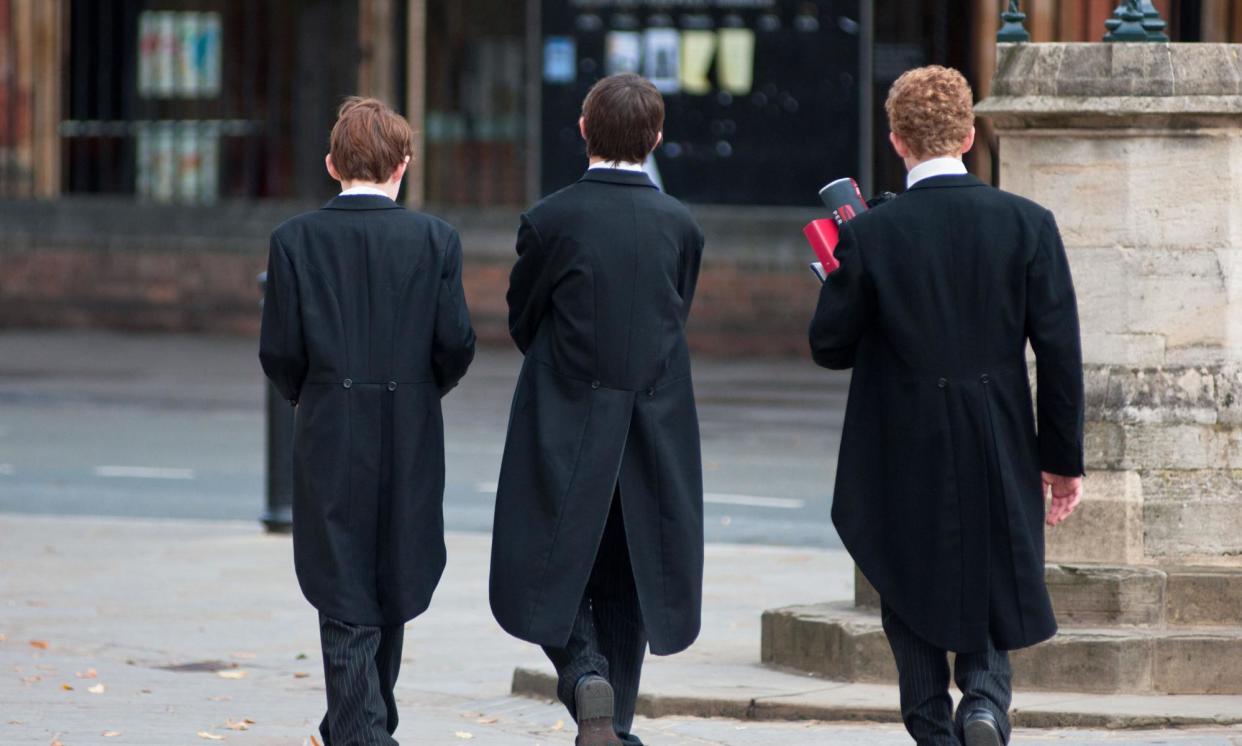What are Labour’s plans for ending tax breaks for private schools?

One of Labour’s headline policies in the run-up to the general election is its promise to end tax breaks for private schools in the UK.
The policy is not new – it was adopted under Jeremy Corbyn and has featured in previous Labour election manifestos. But with Keir Starmer’s party leading in the polls and apparently on course for victory on 4 July, it is coming under renewed scrutiny, prompting front page headlines, claims and counter-claims.
With polling day little more than five weeks away, here is a breakdown of Labour’s plans and what they could mean.
What is Labour proposing?
Labour has said that if it wins the general election it plans to remove tax exemptions that private schools enjoy. The most significant of these in terms of revenue is VAT, which Starmer has pledged to add to private school fees at the standard rate of 20%.
What happens at the moment?
Under existing arrangements, independent schools do not have to charge VAT on their fees, thanks to an exemption for the supply of education. Many, including the Conservative former education secretary Michael Gove, have argued this is unfair.
Writing in the Times in 2017, Gove said: “Private school fees are VAT exempt. That tax advantage allows the wealthiest in this country, indeed the very wealthiest in the globe, to buy a prestige service that secures their children a permanent positional edge in society at an effective 20% discount. How can this be justified?”
What does Labour hope to achieve?
By ending private schools’ tax breaks, Labour’s aim is not only to address a fundamental unfairness but to generate additional funding that can be invested in the state education sector. The share of pupils in private schools across the UK has remained at about 6% to 7% for the last 20 years, which equates to 560,000-570,000 pupils in England.
The Institute for Fiscal Studies (IFS) has said the policy will generate roughly £1.5bn a year, which Labour has said it will use to pay for 6,500 more teachers – one of its key election pledges.
“This funding will also help pay for mental health support staff in every school, working to boost the wellbeing of young people, many of whom are still suffering the effects of lockdown,” Labour has said.
What impact will it have?
Views on this are many and varied. The Daily Mail’s front page story on Tuesday claimed: “Labour’s tax raid on private schools would force nearly half of fee-paying pupils into the state system.” It said a survey of parents with children at private schools indicated that “as many as 224,000 pupils could leave as a result”.
It is the latest – and most extreme – of a slew of stories in recent weeks that say the policy will lead to a sharp increase in private school fees, which will in turn trigger an “exodus” of pupils to already overstretched state schools, potentially costing the government more than it raises in taxes.
Labour has dismissed this as scaremongering. “It’s the vested interests in the private school lobby which make those kinds of bogus arguments,” the shadow education secretary, Bridget Phillipson, told the BBC Radio 4 Today programme.
With that in mind, it should be pointed out that the survey on which the Mail report depends was conducted by Baines Cutler, who describe themselves as the “leading experts in financial benchmarking and strategic advice for the independent schools’ sector”.
A report by the IFS, often described as Britain’s leading economics thinktank, predicted – in contrast – that removing tax exemptions was likely to have a “relatively limited effect” on numbers attending private schools, with a mere 3%-7% reduction in numbers.
Could it lead to private schools closing?
Critics of the policy fear it could, but it is not the Etons or Winchesters of this world that will suffer. It was reported over the weekend that Alton school, an £18,000-a-year Catholic day school in Hampshire, is to close at the end of the current term.
“This proposal is based on a continued decline in pupil numbers, to the extent that the school has now become unviable,” a statement on the school’s website said. “This is due to a combination of adverse political and economic factors.”
The Telegraph called it the first victim of “Labour’s planned tax raid on private education”.
According to the Independent Schools Council, which represents 1,300 private schools in the UK, there has been a 2.7% drop in new pupil recruitment since last year.
There could, however, be several reasons for that – sharp fee increases due to inflation, the impact of the cost of living crisis on parents, and the declining birthrate. Small independent schools, often charging significantly lower fees, have always been more precarious, and they will be concerned Labour’s policy could tip them over the edge.
Could the policy have unintended consequences?
While some commentators have said the policy will pile additional pressures on state schools that are already struggling with squeezed budgets and insufficient teachers, others say the impact will be much more limited.
Schools are already well used to dealing with sudden influxes, such as child refugees from countries such as Ukraine and Afghanistan. With rolls falling in some areas of the country, additional pupils from the private sector could even be a bonus, bringing in additional funding.
According to IFS analysis, a small shift in pupils from the private to the state sector would require an additional £100m-£300m in school funding a year for the UK. It’s worth noting that the overall schools budget in England is about £60bn.
But, the IFS notes, it “should be remembered that pupil numbers in the state sector are expected to fall dramatically over the next decade and state schools might therefore welcome extra pupils moving from the private sector”.

 Yahoo News
Yahoo News 
